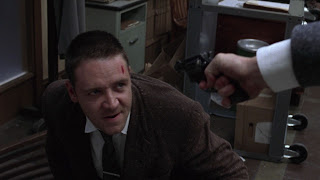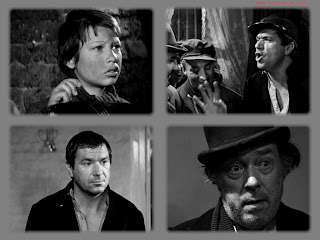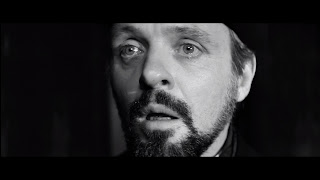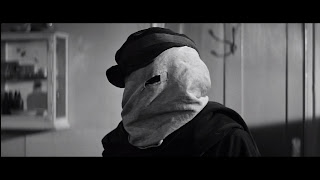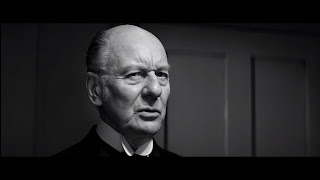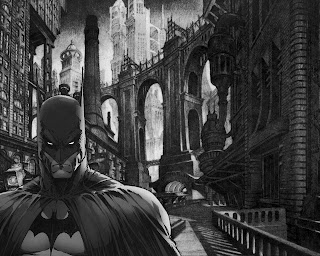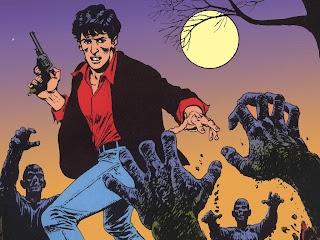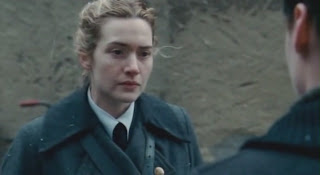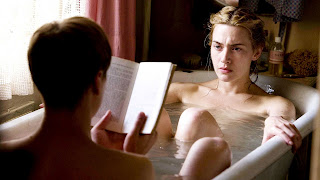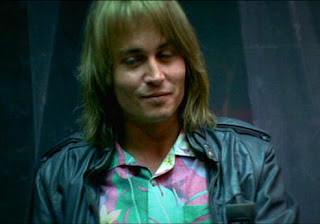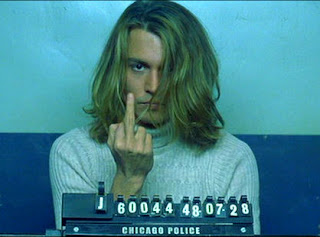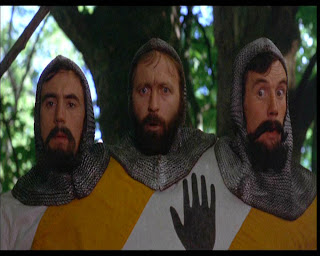Thursday, June 28, 2012
THE ELEPHANT MAN
Story:
Joseph Carey Merrick (5 August 1862 – 11 April 1890), sometimes incorrectly referred to as John Merrick, was an English man with severe deformities who was exhibited as a human curiosity named the Elephant Man. He became well known in London society after he went to live at the London Hospital. Merrick was born in Leicester and began to develop abnormally during the first few years of his life. His skin appeared thick and lumpy, he developed an enlargement of his lips, and a bony lump grew on his forehead. One of his arms and both feet became enlarged and at some point during his childhood he fell and damaged his hip, resulting in permanent lameness. When he was 11, his mother died and his father soon remarried. Merrick left school at 12, and had difficulty finding employment. Rejected by his father and stepmother, he left home. In late 1879, aged 17, Merrick entered the Leicester Union workhouse.
Joseph Carey Merrick (5 August 1862 – 11 April 1890), sometimes incorrectly referred to as John Merrick, was an English man with severe deformities who was exhibited as a human curiosity named the Elephant Man. He became well known in London society after he went to live at the London Hospital. Merrick was born in Leicester and began to develop abnormally during the first few years of his life. His skin appeared thick and lumpy, he developed an enlargement of his lips, and a bony lump grew on his forehead. One of his arms and both feet became enlarged and at some point during his childhood he fell and damaged his hip, resulting in permanent lameness. When he was 11, his mother died and his father soon remarried. Merrick left school at 12, and had difficulty finding employment. Rejected by his father and stepmother, he left home. In late 1879, aged 17, Merrick entered the Leicester Union workhouse.
In
1884, after four years in the workhouse, Merrick contacted a showman named Sam
Torr and proposed that Torr should exhibit him. Torr agreed, and arranged for a
group of men to manage Merrick, whom they named the Elephant Man. After touring
the East Midlands, Merrick travelled to London to be exhibited in a penny gaff
shop on Whitechapel Road which was rented by showman Tom Norman. Norman's shop,
directly across the street from the London Hospital, was visited by a surgeon
named Frederick Treves, who invited Merrick to be examined and photographed.
Soon after Merrick's visits to the hospital, Tom Norman's shop was closed by
the police and Merrick's managers sent him to tour in Europe.
In
Belgium, Merrick was robbed by his road manager and abandoned in Brussels. He
eventually made his way back to London; unable to communicate, he was found by
the police to have Frederick Treves' card on him. Treves came and took Merrick
back to the London Hospital. Although his condition was incurable, Merrick was
allowed to stay at the hospital for the remainder of his life. Treves visited
him daily and the pair developed quite a close friendship. Merrick also
received visits from the wealthy ladies and gentlemen of London society,
including Alexandra, Princess of Wales.
Merrick
died on 11 April 1890, aged 27. The official cause of death was asphyxia,
although Treves, who dissected the body, said that Merrick had died of a
dislocated neck. He believed that Merrick—who had to sleep sitting up because
of the weight of his head—had been attempting to sleep lying down, to "be
like other people". The exact cause of Merrick's deformities is unclear.
The dominant theory throughout much of the 20th century was that Merrick
suffered from neurofibromatosis type I. In 1986, a new theory emerged that he
had Proteus syndrome. In 2001 it was proposed that Merrick had suffered from a
combination of neurofibromatosis type I and Proteus syndrome. DNA tests
conducted on his hair and bones have proven inconclusive.
In
1979, Bernard Pomerance's play about Merrick called The Elephant Man débuted,
and David Lynch's film, also called The Elephant Man, was released the
following year.
Movie:
A Victorian surgeon rescues a heavily disfigured man who
is mistreated while scraping a living as a side-show freak. Behind his
monstrous facade, there is revealed a person of intelligence and sensitivity.
Director: David Lynch
Stars: Anthony Hopkins,
John Hurt and Anne Bancroft
IMDB mark: 8.3/10
Trailer:
Friday, June 22, 2012
BATMAN
Batman
is a fictional character, a comic book superhero created by artist Bob Kane and
writer Bill Finger. The character first appeared in Detective Comics #27 (May
1939), and since then has appeared primarily in publications by DC Comics.
Originally referred to as "The Bat-Man" and still referred to at
times as "The Batman", he is additionally known as "The Caped
Crusader", "The Dark Knight", and "The World's
Greatest Detective," among other titles.
In
the original version of the story and the vast majority of retellings, Batman's
secret identity is Bruce Wayne, an American millionaire (later billionaire)
playboy, industrialist, and philanthropist. Having witnessed the murder of his
parents as a child, he swore revenge on criminals, an oath tempered with the
greater ideal of justice. Wayne trains himself both physically and
intellectually and dons a bat-themed costume in order to fight crime. Batman
operates in the fictional American Gotham City, assisted by various supporting
characters including his crime-fighting partner, Robin, his butler Alfred
Pennyworth, the police commissioner Jim Gordon, and occasionally the heroine
Batgirl. He fights an assortment of villains such as the Joker, the Penguin,
the Riddler, Two-Face, Poison Ivy and Catwoman. Unlike most superheroes, he
does not possess any superpowers; he makes use of intellect, detective skills,
science and technology, wealth, physical prowess, martial arts skills, an
indomitable will, fear, and intimidation in his continuous war on crime.
Batman
became a very popular character soon after his introduction and gained his own
comic book title, Batman, in 1940. As the decades wore on, differing
interpretations of the character emerged. The late 1960s Batman television
series used a camp aesthetic which continued to be associated with the
character for years after the show ended. Various creators worked to return the
character to his dark roots, culminating in the 1986 miniseries The Dark Knight
Returns, by Frank Miller, while the successes of Tim Burton's 1989 film Batman
and Christopher Nolan's 2005 reboot Batman Begins also helped to reignite
popular interest in the character. A cultural icon, Batman has been licensed
and adapted into a variety of media, from radio to television and film, and
appears on a variety of merchandise sold all over the world such as toys and
video games. The character has also intrigued psychiatrists with many trying to
understand the character's psyche and his true ego in society. In May 2011,
Batman placed second on IGN's Top 100 Comic Book Heroes of All Time, after
Superman. Empire magazine also listed him second in their 50 Greatest Comic Book
Characters of All Time.
Publisher:
DC Comics
First
appearance: Detective Comics #27 (May 1939)
Created
by: Bob Kane (concept)
Bill Finger (developer, uncredited)
Picture:
TIZIANO SCLAVI
Tiziano
Sclavi (born in Broni on April 3, 1953) is an Italian comic book author,
journalist and writer of several novels. Sclavi is most famous as creator of
the comic book Dylan Dog in 1986, for Italian publishing house Sergio Bonelli
Editore. More than eighty titles have appeared in the series, which has sold 3
million copies. It has been in collaboration with several artists, including
Claudio Villa, Corrado Roi, Gustavo Trigo, Carlo Ambrosini, Luigi Piccatto,
Angelo Stano, Mike Mignola, Andrea Venturi, Giampiero Casertano and Bruno
Brindisi.
Born:
April 3, 1953 (age 59). Broni, Italy
Nationality:
Italian
Area(s):
writer
Notable
works:Dylan Dog
Picture:
Interview:
DYLAN DOG
Dylan
Dog is an Italian horror comics series featuring an eponymous character (a
paranormal investigator) created by Tiziano Sclavi for the publishing house
Sergio Bonelli Editore. Though published in Italy, the series is mainly set in
London, where the protagonist lives, though he occasionally travels elsewhere.
Sclavi's
progressive disinvolvement has left other authors the task of carrying forward
character continuity.
Dark
Horse Comics has published the English version of Dylan Dog,published in the
United States. The series is also published in Croatia by Ludens, in Serbia by
Veseli Četvrtak and Expik Publications, in Denmark by Shadow Zone Media, in the
Netherlands by Silvester, in Poland by Egmont Polska, in Spain by Aleta
Ediciones, and in Turkey by Rodeo and Hoz Comics.
Publisher:
Sergio Bonelli Editore
Format:
Ongoing series
Genre:
Horror
Publication
date: October 1986 – present
Main
character(s): Dylan Dog.
Picture:
THE READER
The
Reader is a 2008 drama film based on the 1995 German novel of the same name by
Bernhard Schlink. The film was written by David Hare and directed by Stephen
Daldry. Ralph Fiennes and Kate Winslet star along with the young actor David
Kross. It was the last film for producers Anthony Minghella and Sydney Pollack,
who both died before it was released. Production began in Germany in September
2007, and the film opened in limited release on December 10, 2008.
It
tells the story of Michael Berg, a German lawyer who as a mid-teenager in 1958
had an affair with an older woman, Hanna Schmitz, who then disappeared only to
resurface years later as one of the defendants in a war crimes trial stemming
from her actions as a guard at a Nazi concentration camp. Michael realizes that
Hanna is keeping a personal secret she believes is worse than her Nazi past—a
secret which, if revealed, could help her at the trial.
Winslet
and Kross, who plays the young Michael, received much praise for their
performances; Winslet won a number of awards for her role, including the
Academy Award for Best Actress. The film itself was nominated for several other
major awards, including the Academy Award for Best Picture.
IMDB mark: 7,6
Trailer:
BLOW
Blow is a 2001 biopic about
the American cocaine smuggler George Jung, directed by Ted Demme. David McKenna
and Nick Cassavetes adapted Bruce Porter's 1993 book Blow: How a Small Town Boy
Made $100 Million with the Medellín Cocaine Cartel and Lost It All for the
screenplay. It is based on the real life stories of George Jung, Pablo Escobar,
Carlos Lehder, and the Medellín Cartel. The film's title comes from a slang
term for cocaine.
IMDB mark: 7,5
Trailer:
Picture:
Thursday, June 21, 2012
MONTHY PYTHON AND THE HOLY GRAIL
Monty
Python and the Holy Grail is a 1975 British comedy film written and performed
by the comedy group Monty Python (Graham Chapman, John Cleese, Terry Gilliam,
Eric Idle, Terry Jones and Michael Palin), and directed by Gilliam and Jones.
It was conceived during the gap between the third and fourth series of their
popular BBC television programme Monty Python's Flying Circus.
In
contrast to the group's first film, And Now for Something Completely Different,
a compilation of sketches from the first two television series, Holy Grail was
composed of new material, therefore considered the first "proper"
film by the group. It generally parodies the legend of King Arthur's quest to
find the Holy Grail. The film was a success on its initial release, and Idle
used the film as the inspiration for the 2005 Tony Award-winning musical
Spamalot.
The
film was nominated for the Hugo Award for Best Dramatic Presentation in 1976,
but lost to A Boy and His Dog.
IMDB mark: 8,4
Trailer:
Pictures:
CHARLES BUKOWSKI
Charles Bukowski
Henry
Charles Bukowski (born Heinrich Karl Bukowski; August 16, 1920 – March 9, 1994)
was an American poet, novelist and short story writer. His writing was
influenced by the social, cultural and economic ambience of his home city of
Los Angeles. It is marked by an emphasis on the ordinary lives of poor
Americans, the act of writing, alcohol, relationships with women and the
drudgery of work. Bukowski wrote thousands of poems, hundreds of short stories
and six novels, eventually publishing over sixty books. In 1986 Time called
Bukowski a "laureate of American lowlife". Regarding Bukowski's
enduring popular appeal, Adam Kirsch of The New Yorker wrote, "the secret
of Bukowski’s appeal. . . [is that] he combines the confessional poet’s promise
of intimacy with the larger-than-life aplomb of a pulp-fiction hero."
Born:
Heinrich Karl Bukowski, August 16, 1920. Andernach, Germany
Died:
March 9, 1994 (aged 73). San Pedro, California, U.S.
Occupation:
Novelist, poet, short story writer, columnist
Nationality:
German-American
Literary
movement: Dirty realism, Transgressive fiction.
Poem:
Are
You Drinking?
washed-up,
on shore, the old yellow notebook
out
again
I
write from the bed
as
I did last
year.
will
see the doctor,
Monday.
"yes,
doctor, weak legs, vertigo, head-
aches
and my back
hurts."
"are
you drinking?" he will ask.
"are
you getting your
exercise,
your
vitamins?"
I
think that I am just ill
with
life, the same stale yet
fluctuating
factors.
even
at the track
I
watch the horses run by
and
it seems
meaningless.
I
leave early after buying tickets on the
remaining
races.
"taking
off?" asks the motel
clerk.
"yes,
it's boring,"
I
tell him.
"If
you think it's boring
out
there," he tells me, "you oughta be
back
here."
so
here I am
propped
up against my pillows
again
just
an old guy
just
an old writer
with
a yellow
notebook.
something
is
walking
across the
floor
toward
me.
oh,
it's just
my
cat
this
time.
Charles
Bukowski
Picture:
Subscribe to:
Posts (Atom)



